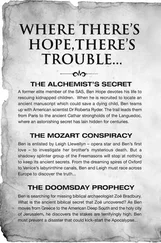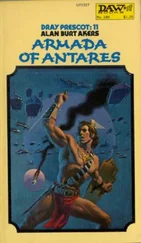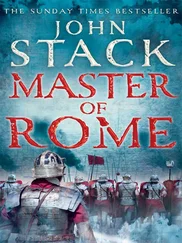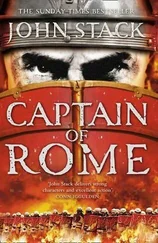Evardo ran his hand along the sea-worn timber of the gunwale. The Santa Clara was a good ship. She had weathered the storm well and protected the lives of her crew. There was little more Evardo could ask of her. In return he would protect her in battle, save her as much as possible from the shot and fire of the enemy before bringing her alongside her prey. The English galleons would not be an easy target but Evardo trusted the mettle of his men. They may be downhearted, but a few days of good fortune would quickly raise their spirits and the sight of the enemy would put fire in their blood.
‘Zabra approaching off the starboard beam.’
Evardo rushed to the other side of the quarterdeck. The small dispatch ship was coming up fast. The commander of the squadron of Castile, de Valdés, was in the bow.
Earlier that morning Evardo had watched the senior officers in their pataches sailing to the flagship, the San Martin . A council of war had been convened and once again Evardo glanced at the supplies being loaded onto the Santa Clara . De Valdés came quickly alongside.
‘Ready your ship, Comandante Morales,’ he shouted from the zabra. ‘We sail for England on the next favourable tide!’
The crew on deck cheered at the news and Evardo waved a reply to his commander. He looked to the banners on the masthead of the Santa Clara . They were barely stirring in the feeble wind. He had time. Evardo called for the men on the main deck to redouble their efforts. The order had been given. At any time the wind that would bear the Armada to England might arise and Evardo was determined that the Santa Clara would be ready for the fight.
Robert cursed loudly and spat over the side onto the still waters surrounding the Retribution . The sea mocked his scorn and continued to lap against the hull while the sun reflected off the smooth undulating surface as it shone from a clear blue sky. For three days the wind had blown steadily from the north, bearing the fleet on like an arrow loosed from a bow, but then, not sixty miles from La Coruña, it had suddenly died, leaving the English fleet becalmed.
Robert shaded his eyes from the glare of the sun and gazed about at the fleet, searching to see if any of their sails showed signs of catching an errant breeze. He could hear the undertones of his ship, the steady creak of timbers and the mixture of voices below decks, muffled and absorbed by the hull. The ship’s bell rang eight times, marking the beginning of the first dog watch.
Near at hand Seeley called out the order for the change and bare feet thudded across the decks as men went to relieve their crewmates.
‘I’ve ordered more men to the fighting tops to act as lookouts, Captain,’ the master said, and Robert nodded his agreement. So close to the Spanish coast, they were liable to be seen by a local trader or fisherman and any surprise they might hope to have over the Armada would be lost. Robert smiled sardonically to himself. If they did see a Spanish vessel in the distance, without a favourable wind, there was little they could do to stop them escaping.
‘Sixty miles,’ Seeley spat. ‘If the wind had held we’d be in The Groyne now.’
‘Patience, Thomas,’ Robert said, although he keenly felt the frustration of having been denied the chance to take the fight to Spanish waters. ‘We still have time.’
A flash of movement caught Robert’s eye. One of the masthead banners had rippled open and collapsed once more. The air stirred, caressing his cheek.
‘Quarterdeck, ho,’ a shout came from the top of the main mast. ‘Wind coming up!’
Robert felt it again and this time the masthead banners snapped out with the force of the gust before wilting.
‘Mister Seeley,’ Robert called. ‘Get ’em aloft.’
‘All hands of the watch, to the rigging!’
The wind gusted again and the smaller top gallant sails began to take shape.
‘We have ’em.’ Seeley smiled.
Robert stayed silent. He looked to the sun and checked his bearings. The fleet had been becalmed in the featureless sea for over twenty-four hours and in that time the ships had drifted and spun with the subtle undercurrents of the water. The wind was still to their backs, but their bows were no longer pointing at La Coruña, they were pointing northwards, to England. Robert looked to Seeley. He was no longer smiling and Robert saw the delayed awareness dawn on his face.
‘God in His Heaven,’ Seeley muttered. ‘It’s a southerly wind.’
The sails began to fill as the wind stiffened and all around the Retribution , the ships of the English fleet began to get underway. The fortune that had carried them south had been exhausted sixty miles from their destination. Now it had been neatly reversed and Robert ordered all hands on deck to lay on every inch of sail.
If it held, the wind would carry them all the way home to Plymouth, but in remaining true it would also swiftly bear the Spanish Armada from port and send them hard on their heels. The plan to fight the Spanish in their home waters was no more. The enemy now held the advantage and the battle to come would be fought in the English Channel, with the men of Elizabeth’s navy standing with their backs to the very coastline they were sworn to defend.
CHAPTER 12
30th July 1588. Plymouth, England.
John Cross paused at the door of the tavern and looked up at the sign swinging lazily with the onshore breeze. The paint on the side facing the sea had long since faded but on the reverse Cross could just make out the name, The Bosun. It was all but redundant; the tavern was no different from the dozen or so others on the narrow street and Cross wondered for a moment what had happened to the families who had once occupied these tiny hovels in the oldest part of Plymouth.
It was late afternoon, but the tavern was quiet and Cross glanced through the small smoke stained window to the side of the door. This would be his last stop for the day and he consciously shrugged off the weariness of his search. He had tried every conventional ploy in his hunt for Robert Young, but as he did not know his assumed name he had constantly been frustrated. He could not go back to Walsingham empty handed. He had to go on, and with all other options exhausted he had been reduced to trawling the back streets of Plymouth in a vain search for good fortune.
The gallop of horses at the harbour end of the street caused him to turn and he moved back from the door to gain a better view, carefully stepping over the rivulet of sewage that tricked along a channel in the cobblestones. What he could see of Plymouth harbour was filled with the ships of the English fleet and while the presence of so many vessels would normally herald a busy time for the taverns, the crews had all been denied shore leave. The Armada was coming. No one knew when, but they were at sea with a fair wind and it was only a matter of time before they reached the mouth of the English Channel.
That dread warning had arrived with the English fleet’s return over a week before, along with a call from Howard to the town and surrounding countryside for fresh supplies for the fleet. Cross was convinced it was a forlorn hope. The marketplaces had already been stripped bare of their goods and there was little chance the sparse population of the surrounding countryside could provide any more for such a confluence of men. In any case, war was coming to the shores of England and Cross suspected that many people had already taken to hoarding their food.
He went back to the door of the tavern and pushed it open. It closed behind him and he stood for a moment in the gloom. The place smelled of stale beer and vomit while the air drifting in through an open door to the rear carried the faint stench of urine from the latrine outside. A barman stood behind a rough hewn counter of planks supported by upended casks. He was an older man, broad across the chest, and his frame still carried a residue of the strength he had in his youth. He looked Cross up and down.
Читать дальше
Конец ознакомительного отрывка
Купить книгу











